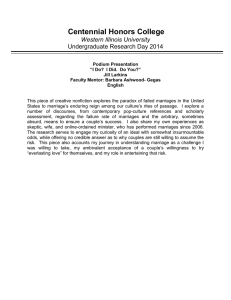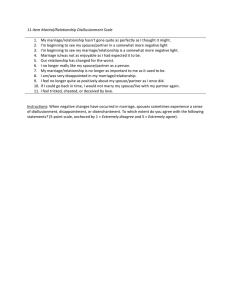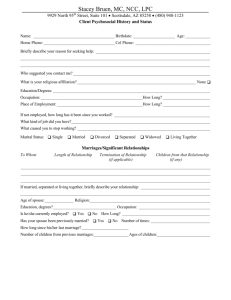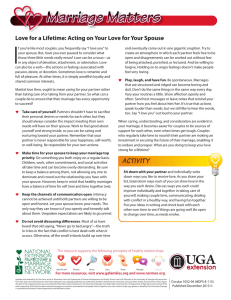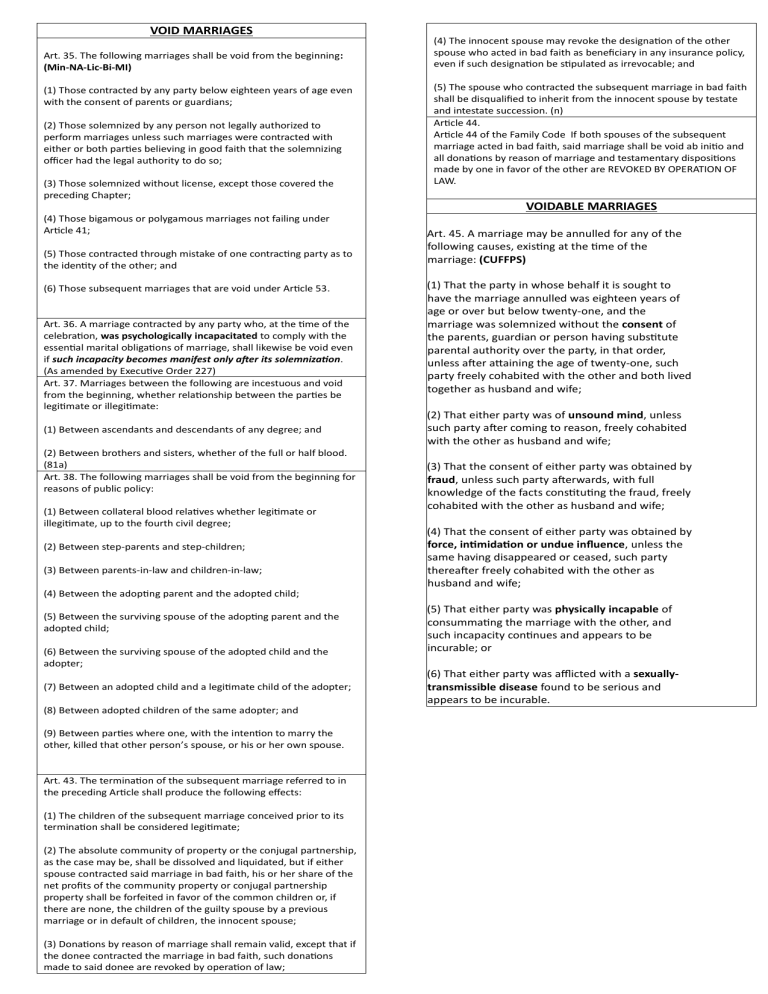
VOID MARRIAGES Art. 35. The following marriages shall be void from the beginning: (Min-NA-Lic-Bi-MI) (1) Those contracted by any party below eighteen years of age even with the consent of parents or guardians; (2) Those solemnized by any person not legally authorized to perform marriages unless such marriages were contracted with either or both parties believing in good faith that the solemnizing officer had the legal authority to do so; (3) Those solemnized without license, except those covered the preceding Chapter; (4) The innocent spouse may revoke the designation of the other spouse who acted in bad faith as beneficiary in any insurance policy, even if such designation be stipulated as irrevocable; and (5) The spouse who contracted the subsequent marriage in bad faith shall be disqualified to inherit from the innocent spouse by testate and intestate succession. (n) Article 44. Article 44 of the Family Code If both spouses of the subsequent marriage acted in bad faith, said marriage shall be void ab initio and all donations by reason of marriage and testamentary dispositions made by one in favor of the other are REVOKED BY OPERATION OF LAW. VOIDABLE MARRIAGES (4) Those bigamous or polygamous marriages not failing under Article 41; (5) Those contracted through mistake of one contracting party as to the identity of the other; and (6) Those subsequent marriages that are void under Article 53. Art. 36. A marriage contracted by any party who, at the time of the celebration, was psychologically incapacitated to comply with the essential marital obligations of marriage, shall likewise be void even if such incapacity becomes manifest only after its solemnization. (As amended by Executive Order 227) Art. 37. Marriages between the following are incestuous and void from the beginning, whether relationship between the parties be legitimate or illegitimate: (1) Between ascendants and descendants of any degree; and (2) Between brothers and sisters, whether of the full or half blood. (81a) Art. 38. The following marriages shall be void from the beginning for reasons of public policy: (1) Between collateral blood relatives whether legitimate or illegitimate, up to the fourth civil degree; (2) Between step-parents and step-children; (3) Between parents-in-law and children-in-law; (4) Between the adopting parent and the adopted child; (5) Between the surviving spouse of the adopting parent and the adopted child; (6) Between the surviving spouse of the adopted child and the adopter; (7) Between an adopted child and a legitimate child of the adopter; (8) Between adopted children of the same adopter; and (9) Between parties where one, with the intention to marry the other, killed that other person’s spouse, or his or her own spouse. Art. 43. The termination of the subsequent marriage referred to in the preceding Article shall produce the following effects: (1) The children of the subsequent marriage conceived prior to its termination shall be considered legitimate; (2) The absolute community of property or the conjugal partnership, as the case may be, shall be dissolved and liquidated, but if either spouse contracted said marriage in bad faith, his or her share of the net profits of the community property or conjugal partnership property shall be forfeited in favor of the common children or, if there are none, the children of the guilty spouse by a previous marriage or in default of children, the innocent spouse; (3) Donations by reason of marriage shall remain valid, except that if the donee contracted the marriage in bad faith, such donations made to said donee are revoked by operation of law; Art. 45. A marriage may be annulled for any of the following causes, existing at the time of the marriage: (CUFFPS) (1) That the party in whose behalf it is sought to have the marriage annulled was eighteen years of age or over but below twenty-one, and the marriage was solemnized without the consent of the parents, guardian or person having substitute parental authority over the party, in that order, unless after attaining the age of twenty-one, such party freely cohabited with the other and both lived together as husband and wife; (2) That either party was of unsound mind, unless such party after coming to reason, freely cohabited with the other as husband and wife; (3) That the consent of either party was obtained by fraud, unless such party afterwards, with full knowledge of the facts constituting the fraud, freely cohabited with the other as husband and wife; (4) That the consent of either party was obtained by force, intimidation or undue influence, unless the same having disappeared or ceased, such party thereafter freely cohabited with the other as husband and wife; (5) That either party was physically incapable of consummating the marriage with the other, and such incapacity continues and appears to be incurable; or (6) That either party was afflicted with a sexuallytransmissible disease found to be serious and appears to be incurable.
